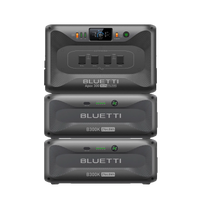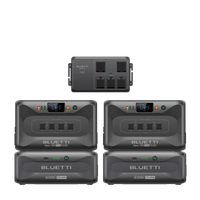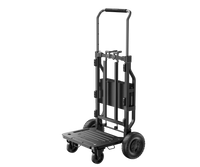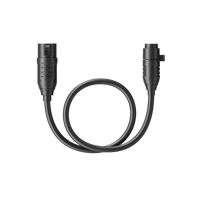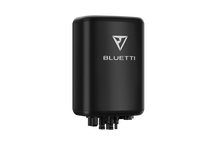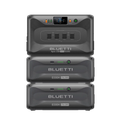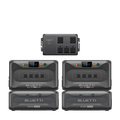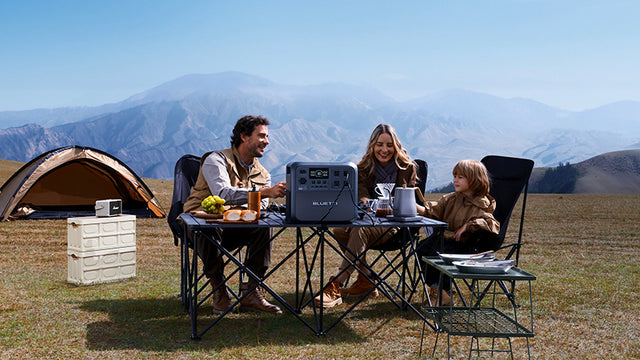Your cart is empty
Shop our productsYou must own a refrigerator, right? In this day and age, refrigerators are an indispensable device for the household. After all, they not only keep left-over food items fresh but also store other essential ingredients.
Now, two questions surface. Firstly, how many watts does a refrigerator use to keep up with its vital function? Secondly, what size generator would be required for such a refrigerator?
Learn all about it with us as we explore its differing facets.
How Many Watts Does a Refrigerator Use?
The most important question is how many watts does a refrigerator use? That’s right, before delving into anything else, you first need to determine the wattage requirement of your refrigerator. If you don’t understand its power consumption first, how will you purchase the right-sized generator for it later?
Generally, a refrigerator’s wattage dangles between 300W to 800W. You can find out your refrigerator’s exact wattage by referring to its manufacturer’s specifications or the energy guide label.
Of course, you must also keep in mind that the size, type, and model of your refrigerator play a significant role in ascertaining its exact wattage. For instance, a larger model with fancy features will consume notably higher power than a standard one.
Types of Refrigerators and Average Power Consumption

You will find various types of refrigerators available in the market, all suited to fit specific requirements. Accordingly, how many watts does a refrigerator use varies for each of these types.
1. Standard Refrigerator
A standard refrigerator is an appliance typically found in most homes. They have ample space to store the required food items for your whole family. On average, they consume about 120W to 240W of power when they are run, depending on their make and model.
2. Compact Refrigerator
A mini version of a conventional refrigerator, you will find compact refrigerators ideal for small places like offices and dorm rooms. After all, they provide ample space for an individual’s essential needs without consuming a lot of space in the room.
Their average power consumption ranges from 30W to 80W, depending on the size and model.
3. Side-By-Side Refrigerator
Side-by-side refrigerators are relatively larger units, offering you separate compartments for freezer and fridge sections. With their advanced features and bigger sizes, they consume an average of 120W.
However, the figure can go as high as 400W, depending on its size, features, and model.
|
Types of Refrigerator |
Average Power Consumption |
|
Standard Refrigerator |
120W to 240W |
|
Compact Refrigerator |
30W to 80W |
|
Side-By-Side Refrigerator |
120W to 400W |
Starting Watts and Running Watts
How many watts does a refrigerator use is not limited to its running time. There are two types of wattages that a refrigerator requires to get into shape.
Starting Watts
The starting watts are equivalent to a burst of extra power that kickstarts its compressor. Due to its function, this wattage is typically two to three times higher than the running watts. Thus, you require a generator with enough surge power to withstand this high starting watts.
Running Watts
As its name suggests, running watts are the power required by a refrigerator to run. Contrary to the starting watts, where there is a sudden power surge, the running watts are a lower and constant power draw. It, thus, calls for a steady power supply to keep on running.
See the following table to check out the starting and running watts of each type of refrigerator discussed above.
|
Types of Refrigerators |
Average Power Consumption |
Starting Watts |
Running Watts |
|
Standard Refrigerator |
120W to 240W |
360W to 720W |
90W to 180W |
|
Compact Refrigerator |
30W to 80W |
280W to 360W |
70W to 90W |
|
Side-By-Side Refrigerator |
120W to 400W |
720W to 800W |
180W to 200W |
Types of Generators
The knowledge of how many watts does a refrigerator use is necessary when choosing a generator for your home. Moreover, there is more than one option available for the type of generator to opt for.
1. Gas generators
Gas generators are your most affordable option when selecting a generator. Their fuel is also readily available, and they have high power output. Their fuel efficiency varies. Nevertheless, they also have their drawbacks.
The noise they produce while running is off-putting; people who get irritated really quickly with loud noises would especially find them disturbing. Another downside is their production of emissions and, thus, a need for proper ventilation.
2. Solar generators
The epitome of environmentally friendly, solar generators run on Sun’s solar energy and thus do not require fuel. There is also no noise production, so you will face no issues with neighbors complaining about the noise.
However, everything has both pros and cons. Since solar generators rely solely on the Sun, they are rendered ineffective in cloudy and rainy conditions where the Sun is unavailable.
Also, solar generators significantly reduce your electrical bills in the long run. Nonetheless, their initial cost is considerably higher.
3. Inverter generators
Inverter generators are another remarkable option for you. For one, they offer fuel efficiency. Secondly, they function quietly without producing unbearable noise. Adding portability to this list, aren’t inverter generators a tempting choice?
These generators also work great with sensitive electronics. Nevertheless, one drawback of inverter generators is that they have a much lower power output than other types of generators.
What Size Generator Do I Need for a Refrigerator?
Now, let’s get to our main question. What size generator would you require depending upon how many watts does a refrigerator use? There is an abundance of options available in the market. Yet, when it comes to the best, solar bests all others.
And, when it comes to solar products, which devices to turn to other than BLUETTI’s? Let us now explore some of BLUETT’s sensational products you will not regret having in your household to support your refrigerator.
1. BLUETTI AC180 Solar Portable Power Station
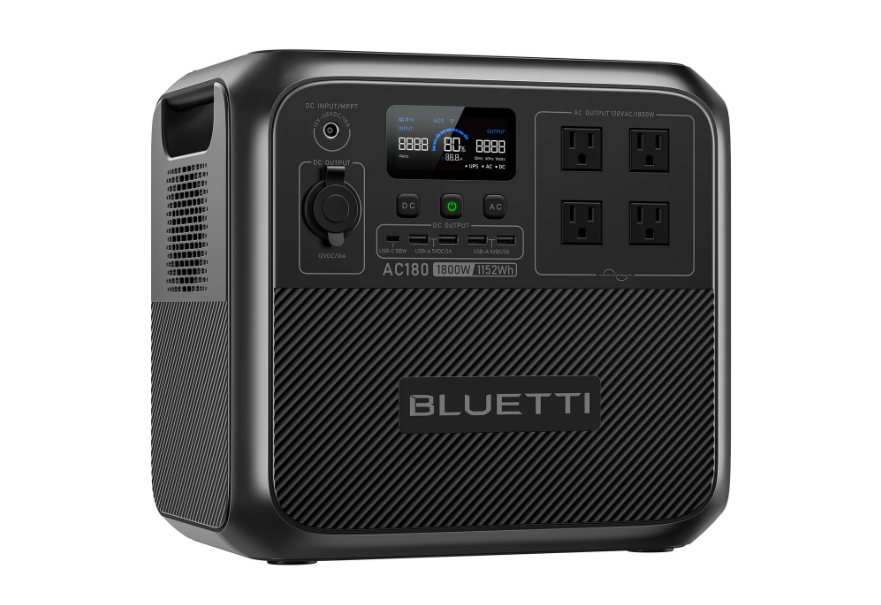
The BLUETTI AC180 Solar Portable Power Station is an excellent alternative to traditional generators. Its versatility, high capacity, and fast charging power solution make it an ideal option to charge your refrigerator. Of course, it can easily support your multiple other appliances simultaneously as well.
Key Features:
AC Output: The BLUETTI AC180 Solar Portable Power Station has an AC output of 1,800W. This output is more than capable of running a refrigerator and even other devices at the same time.
Power Lifting Mode: This appliance boasts a powerlifting mode of 2,700W, therefore making it suitable for an appliance like the refrigerator, which requires a high power surge when starting.
Battery Capacity: This power station has two types of batteries, each with a different capacity: AC180, with a capacity of 1,152Wh, and AC180P, with a capacity of 1,440Wh.
Recharging: It has four ways of recharging - AC, solar, car, and generator. Convenient, isn’t it?
2. BLUETTI AC500 + B300S Home Battery Backup
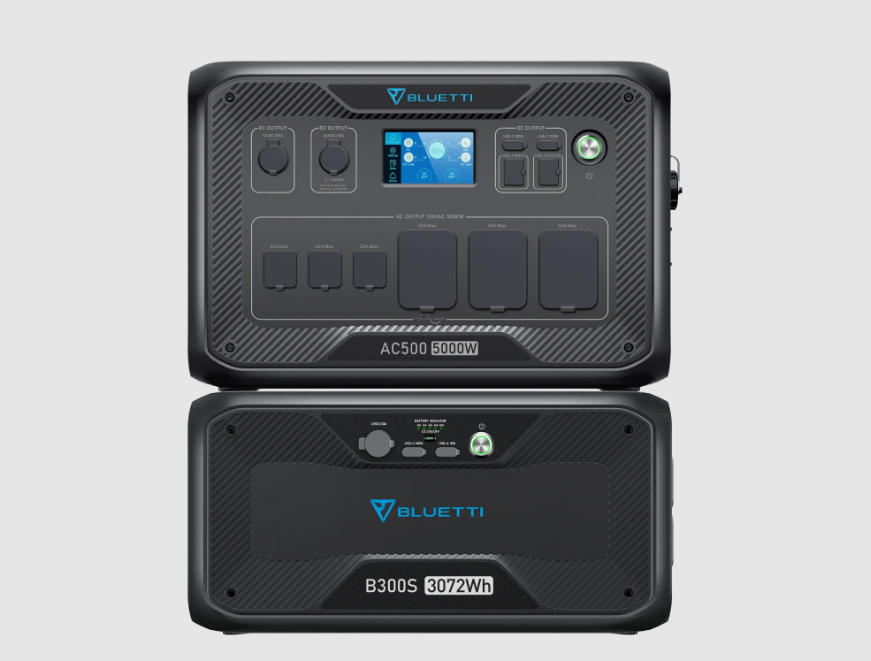
The BLUETTI AC500 + B300S Home Battery Backup is ideal for an uninterrupted power supply in homes. You will simply love its rated power, surge power capacity, expandability, and smart control features.
Key Features:
Rated Power: The BLUETTI AC500 + B300S Home Battery Backup boasts a 5,000W rated power. This power promises to power a wide range of your electrical devices - including your refrigerator - without any issues.
Surge Power: Capable of handling a surge of up to 10,000W, this battery backup can effectively power up appliances, like refrigerators, which require a higher power input when being started.
Expandable Capacity: Its battery capacity is expendable from 3,072Wh to 18,432Wh.
Smart Control: You can easily control and monitor this system through a smart app, which connects through WiFi and Bluetooth. How convenient is that!
Find out the best battery-powered generator for the refrigerator when there’s an outage.
Tips for Reducing Refrigerator Energy Usage
No matter how many watts does a refrigerator use, there are several tips and tricks you can employ to save up on power.
1. Optimal Temperature Setting
Keeping the temperature of your freezer and fridge at the recommended, optimal temperatures is one effective way of lowering their power consumption.
You should make sure to keep the fridge and freezer running at those temperatures. These temperatures are -19°C for the freezer and 3°C (-2°F and 38°F) for the fridge.
2. Regular Maintenance
Another thing to keep in mind is to clean and defrost your fridge regularly. It is because ice buildup leads to energy usage, so make sure to defrost your fridge either manually or through the automatic defrost function.
3. Proper Sealing
Cold air tends to escape if proper door seals are not ensured. Therefore, you should make sure that there is proper door sealing in place.
4. Avoid Overcrowding
Free circulation of air is necessary for the efficient cooling of fridge items. Thus, make sure not to overcrowd your refrigerator.
Final Thoughts
So, what are you waiting for? Estimate how many watts does a refrigerator use, and venture out to find the right generator for your refrigerator. When considering various options, the BLUETTI AC180 Solar Portable Power Station and the BLUETTI AC500 + B300S Home Battery Backup are ideal products to keep in mind.
Shop products from this article
Be the First to Know
You May Also Like

What Does a 30% Federal Solar Tax Credit Mean and How to Apply?
Governments around the world are offering programs that encourage homeowners to switch to solar energy. Among the most notable programs is the 30% Federal Solar Tax Credit. It reduces your...

Deadly Flooding Devastates U.S. South and Midwest — What You Need to Know















